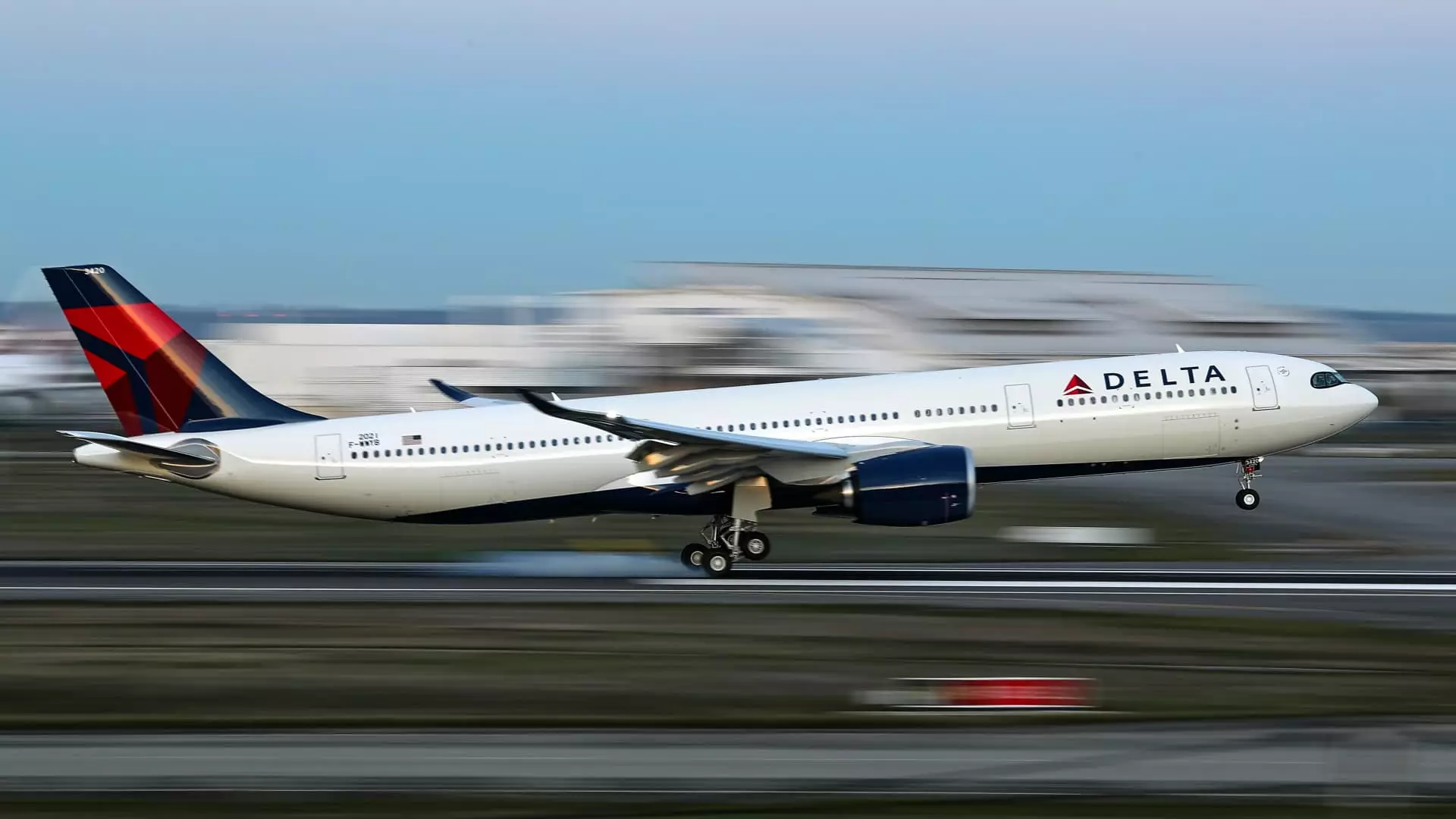Delta Air Lines recently announced its forecast for record revenue in the third quarter, attributing it to the surge in travel demand during the summer season. However, the airline’s projection fell short of analysts’ estimates, as carriers resorted to fare discounts after expanding their flight offerings. Delta expects sales to increase by up to 4% in the current quarter, which is lower than the 5.8% growth estimated by analysts. Additionally, the airline forecasted adjusted earnings per share in the range of $1.70 to $2, falling short of the $2.05 per share anticipated by analysts. This disappointing forecast resulted in an 8% drop in Delta’s shares during early trading, with other U.S. airlines also experiencing a decline.
The airline earnings season commenced with Delta’s report, highlighting the dynamics of the industry marked by full planes and pressure on profits due to rising costs and increased capacity leading to fare reductions. The Transportation Security Administration reported a record of screening over 3 million passengers at U.S. airports, signaling robust passenger traffic. Delta’s position as the most profitable carrier in the U.S. industry underscores the challenges that competitors, especially those exposed to the oversaturated U.S. air travel market, are likely to face this summer. Rival carrier United Airlines, which is set to disclose its results soon, is striving to match Delta’s profitability by expanding premium seating options to enhance revenue generation.
Looking back at Delta’s second-quarter performance, the airline reported adjusted earnings per share of $2.36, matching analysts’ expectations, while its adjusted revenue of $15.41 billion slightly missed the anticipated $15.45 billion. Despite a 5.4% year-over-year increase in revenue, net income declined by nearly 30%, attributed to a 10% rise in operating expenses. CEO Ed Bastian acknowledged the strength of the second quarter but highlighted the impact of heightened fare discounts in response to market dynamics. Bastian expressed optimism in the market’s gradual adjustment to demand through reduced industry capacity in the upcoming months.
The airline industry witnessed a decline in airfare prices, with June rates 5.1% lower than the previous year. However, Delta anticipates a market equilibrium towards the end of summer as demand aligns with reduced capacity. The airline reported an uptick in corporate travel, with most customers expected to maintain or increase their travel spending in the coming months. Delta expects to expand its flying capacity by 5% to 6% in the third quarter, a slower pace compared to the 8% growth in the previous quarter. The airline projects positive unit revenues in September, hoping to capitalize on the growing demand for air travel.
Delta highlighted growth in premium ticket sales, which surged by 10% in the second quarter, resulting in $5.6 billion in revenue. At the same time, revenue from coach tickets saw a marginal increase to approximately $6.7 billion. The airline’s partnership with American Express proved beneficial, generating $1.9 billion in revenue, up by 9% from the previous year. Delta’s diverse revenue streams, including premium seating and partnerships, provide some insulation from industry-wide overcapacity concerns. The airline reaffirmed its full-year earnings forecast of $6 to $7 per share and maintains expectations to generate significant free cash flow.
Delta Air Lines’ third-quarter forecast, while indicating record revenue, fell below analysts’ estimates, reflecting the challenges prevalent in the airline industry. As the company navigates through market uncertainties and focuses on revenue diversification, its resilience and strategic initiatives position it favorably to address the evolving dynamics of the aviation sector.

